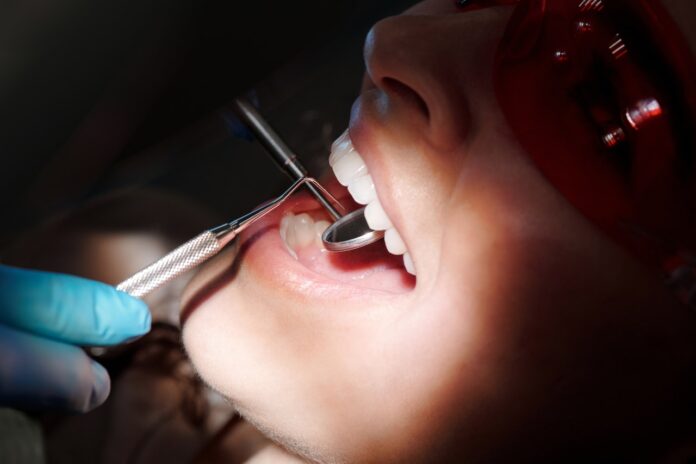Are you wondering if that pesky cavity will heal on its own? We’ve got the answers you need! In this blog post, we’ll go over the signs and symptoms of cavities, explain which ones can heal on their own and which ones need medical intervention, and talk about preventative measures you can take to help keep your teeth healthy!
Signs and Symptoms of Cavities
Cavities can form without causing noticeable symptoms, so regular dental check-ups, such as from a reliable Etobicoke dentist, are important. However, some signs and symptoms of cavities include:
- Toothache: Pain when chewing or pressure on the affected tooth.
- Sensitivity to hot and cold temperatures: Pain when consuming hot or cold foods and drinks.
- Visible holes or pits in the teeth: This is a sign that the cavity has progressed and reached the outer layer of the tooth.
- Brown, black, or white staining on the tooth’s surface: This sign or symptom signifies that the cavity has reached the tooth’s inner layer.
- Bad breath or a bad taste in the mouth: This can be caused by bacteria in the mouth that break down the tooth and cause a cavity.
If you experience any of these symptoms, you must see a certified dentist, like those at West Etobicoke Dental Centre, as soon as possible. Early treatment can prevent the cavity from getting worse and causing more serious dental problems in the future.
Identifying Cavities That Can Heal on Their Own
Cavities can form in any part of the mouth and can profoundly affect oral health. What many may not know is that, in some cases, small cavities can sometimes cure by themselves.
Small dental cavities can sometimes heal themselves in the early stages. It occurs when the tooth can repair itself by remineralizing the area with minerals from saliva and fluoride. However, seeing a dentist for regular check-ups is important, as cavities can progress and become more serious if left untreated.
Dental fillings or other treatments, such as a root canal in Brampton, are also necessary to repair the cavity and prevent further damage. Good oral hygiene practices, such as brushing twice a day and flossing daily, can also help to reduce the risk of developing cavities. Regular visits to the dentist can help detect and treat cavities early, ensuring a healthy smile for years to come.
Preventative Measures for a Healthy Smile: Maintaining Good Oral Health
Photo by Andrea Piacquadio
A healthy smile is not only important for appearance but also crucial for overall health. Poor oral health has been linked to several health problems, including heart disease, stroke, and diabetes. It’s important to follow some basic preventative measures to help keep your teeth and gums healthy. Here are some tips to keep your smile healthy and beautiful.
- Brush teeth twice a day with fluoride toothpaste: Brushing your teeth with fluoride toothpaste is the most basic and effective way to prevent tooth decay and gum disease. Make sure to brush all surfaces of your teeth, including the front, back, and tops.
- Floss daily: Flossing is a crucial step in maintaining good oral health. It removes plaque and food particles between teeth and the gum line, areas where a toothbrush can’t reach.
- Visit the dentist regularly for cleanings and check-ups: Regular dental check-ups and cleanings are important for detecting and preventing oral health problems. A dentist can remove plaque and tartar, check for cavities, and evaluate the overall health of your teeth and gums.
- Limit sugary and acidic foods and drinks: Sugary and acidic foods and drinks can cause tooth decay and damage the enamel on your teeth. Limiting your intake of these foods and drinks can help prevent tooth decay and maintain good oral health.
- Don’t use tobacco products: Tobacco products, such as cigarettes and smokeless tobacco, can cause serious health problems, including gum disease, tooth loss, and oral cancer. Avoiding these products is essential for maintaining good oral health.
- Use mouthwash to kill bacteria: Mouthwash can help kill bacteria in your mouth and freshen your breath. Look for a mouthwash with antimicrobial properties to help prevent plaque and gum disease.
- Drink plenty of water to keep your mouth hydrated: Drinking plenty of water can help flush away food particles and keep your mouth hydrated. Staying hydrated can also help prevent dry mouth, leading to bad breath and increasing the risk of cavities and gum disease.
So that solves our big question: Can cavities heal themselves? Your cavity can heal itself, but it can be difficult and time-consuming. With the right tips and information, it is possible to keep your teeth healthy, reducing your chances of developing a cavity. By learning about dental issues such as cavities, you can get the knowledge necessary to make the best decisions for yourself and your oral health.
If you’re looking for a reliable dentist right now, you can do a quick Google for terms like ’emergency dentist san diego’ or ‘dentist near me’ and it should pull up a list of professionals that you can check out.











